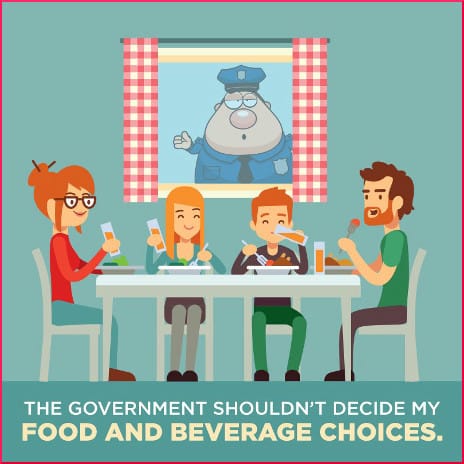
We have seen how Coke and Pepsi and all the rest of the Big Soda crowd, banded together as the American Beverage Association, seem willing to part with extraordinary amounts of money, as long as it buys them the freedom to keep on operating in their accustomed ways. And what are those ways? They lobby ferociously against public health measures, which chiefly consist at this point of one attempt after another to charge a sugar tax that hopefully will discourage customers and reduce the total amount of soda consumption.
The idea behind any “sin tax” is to make the people with bad habits pay for the results of their bad habits (build a cancer hospital) or at least to pay for something that benefits society. A segment of the public rejects the second possibility. People whose strong impulse is to “punish the sinners” don’t like it when nicotine tax money is diverted to school repairs, even though this contributes to the greater good.
Do “sin taxes” work?
Cigarette taxes seem to have reduced smoking, especially among the young and the indigent. Still, there are people who believe otherwise, and who argue that while taxation may have some impact it is certainly not the most effective way to keep people away from tobacco.
Since even that question does not seem settled yet, it annoys Big Soda when crusaders start banging on about how fizzy drinks must be taxed to discourage their use. But, as always, money comes to the rescue. The angry mob may want soda tax and plenty of it, but their organizations and their individual voices can be eliminated one by one, in the most pleasant and agreeable way — by funding their other projects.
Kyle Pfister, Founder of Ninjas for Health, writes in his article for Medium that Coke has been “Paying dietitians to perpetuate lies that promote soda and swing public opinion against policy solutions to the obesity epidemic it helped cause.” When news outlets began to cover the story, the industry admitted that it had been “working with health experts on such social media efforts for several years.” Corporate philanthropy provides an enormous amount of respectable cover for transactions that closely resemble bribery.
But that’s not all
Like any participant in a philosophical battle, the soda industry endeavors to win hearts and minds. We have passed through the stage where “Drink this stuff and you are cool” was a hugely successful ploy. In this increasingly politicized era, now there seems to be a movement based on “Drink this stuff and you are a staunch upholder of the ideals upon which our great country was founded — and you don’t even have to wear a uniform or go overseas.”
Among other entities of questionable integrity, there is an industry-funded cabal known as Cart Choice, as in choosing what goes into the grocery cart — because society has convinced itself of the inalienable right to limitless options. This propaganda implies that choice is not only the primary value, but uniquely and defensibly American. A brief glance at the Cart Choice Twitter page reveals such lively sentiments as:
Education efforts can make a real difference without government taxes that just restrict our freedom to choose what to eat and drink.
Controlling what we eat and drink through taxes and regulations is not the answer.
The government shouldn’t have a say in our food and beverage choices.
These definitively stated principles, however, call to mind an immediate string of ifs, ands, and buts. Why does it have to be one or the other? Why can’t we have both a so-called sin tax and a large amount of education?
If a consumer still has freedom to make the choice, and pay the extra tax, and buy the cigarettes or the sugar-sweetened beverage — is that really “control”? And maybe the government should have a say in our food and beverage choices, like for instance, to protect us from food drenched in Roundup.
(To be continued…)
Your responses and feedback are welcome!
Source: “Is Coke Paying Dietitians To Tweet Against the Soda Tax?,” Medium.com, 10/05/16
Image via Twitter

 FAQs and Media Requests:
FAQs and Media Requests: 











